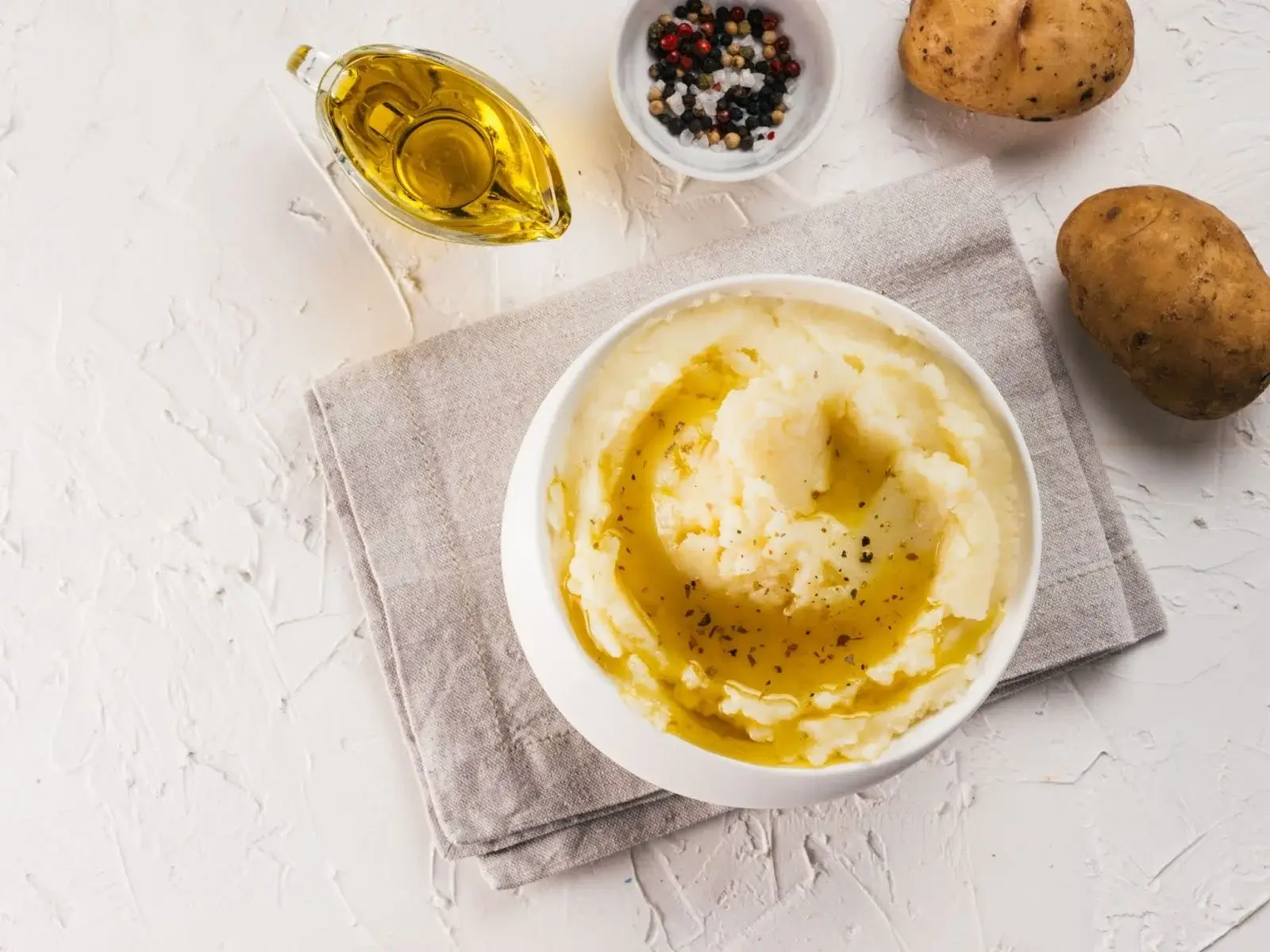https://vimeo.com/912359144
The popularity of the Mediterranean diet has skyrocketed in recent years. This is particularly because of the plethora of research that ranks it as the healthiest diet globally. One of the reasons for this diet’s increasing popularity is the fact that it allows the consumption of red wine. What’s better than pairing a Mediterranean dish with a glass of your favorite, Pinot Noir? Although this sounds exciting, the Mediterranean diet is so much more than that. Founded on a dietary plan that emphasizes plant-based foods and moderate consumption of unhealthy foods, this diet has a lot of depth to it. Read on to learn about the main components of the Mediterranean diet.
Top 7 Principles of the Mediterranean Diet
Emphasis on Plant-Based Foods
One of the most distinct features of the Mediterranean diet is its emphasis on plant-based foods. Most dishes are based on fruits, vegetables, herbs, nuts, and whole grains. And yes, this includes proteins. As discussed later in the article, most protein is obtained from legumes and whole grains. Don’t get me wrong: I’m not saying that you can’t have any meat. However, this eating plan encourages you to fill the most significant portion of your plate with vegetables. So, even if you include meat, it would act more like a garnish than a centerpiece of the Mediterranean Food plan.
The Role of Healthy Fats: Olive Oil and Nuts
The health benefits of following the Mediterranean diet are widely known. These perks come from various sources, but the diet’s strong emphasis on olive oil is a significant contributor. Olive oil is considered the primary fat source in this dietary plan. Olive oil is a healthier fat source because of its monounsaturated fatty acids composition. This is contrary to other types of oil, which are chock full of saturated fats. A high intake of these saturated fats only increases low-density lipoprotein (bad cholesterol) levels. This then heightens the risk of heart disease, obesity, and an array of other conditions. On the other hand, using olive oil nourishes your body with a healthy kind of fat. This reduces LPL, hence mitigating the risk of heart disease. To get you started, here are a few ideas on how to use olive oil in your diet:
- Cook or sauté vegetables with it.
- Sprinkle a tiny amount of it in salads
- Use it in place of butter
Moderate Consumption of Fish and Poultry
It’s easy to see why experts recommend white meat – usually fish and poultry – instead of red meat. They provide the same essential nutrients – including amino acids, minerals, and vitamins – as their red meat counterparts. However, they have far fewer calories and lower LPL levels. The lower calorie levels in white meat translate to fewer adverse health effects. Why, then, does the Mediterranean diet advocate for moderate consumption of poultry? This is because an excessive intake of each of these meats poses a health risk. For instance, poultry has a lower iron content than fish and red meats. On the other hand, eating fish exposes you to mercury. Too much exposure can lead to mercury poisoning, which can damage your central nervous system. So how much fish and poultry is ideal? According to the Mediterranean diet, you should have about three servings of fish weekly, weighing between 3 and 4 ounces. Meanwhile, you shouldn’t have more than one 3-ounce serving of poultry daily. And if you can consume a smaller amount than that or less frequently.
Low Reliance on Red Meat and Processed Foods
The Mediterranean diet advocates low to moderate amounts of fish and poultry. But when it comes to red meat and processed foods, total abstinence is preferred, and understandably so. Studies have shown a strong correlation between high intake of these foods and increased risk of:
- Type 2 diabetes
- Heart disease
- Certain types of cancer, like colon cancer
- Early death
- Cardiovascular disease
So, what is a healthy amount of red meat each week? Well, proponents of this dietary plan recommend no more than one serving, and it shouldn’t be more than three ounces. If you can avoid it altogether, the better. However, if you can’t do without it, opt for lean cuts of meat like flank steak, tenderloin, and sirloin. They have a lower fat content, which helps to minimize your overall caloric intake.
The Significance of Whole Grains and Legumes
If you’re considering adopting the Mediterranean diet, you’ll also want to incorporate tons of whole grains and legumes. Here is a more detailed breakdown of each:
Whole Grains
It’s important to note that whole grains differ from refined grains. Whole grains contain all three essential elements: germ, bran, and endosperm. This means you’re getting the whole package of health benefits. Examples of whole grains include:
- Brown rice
- Millet
- Popcorn
- Whole rye
- Oatmeal
- Barley
- Sorghum
- Buckwheat
In contrast, refined grains have their bran and germ removed, minimizing their nutritional benefits. Even though some refined grains have minerals and vitamins added back during processing, their nutritional profile is different. To put things into perspective, here’s the range of nutrients contained in each part of a whole grain:
- The brand boasts a high fiber content, the outermost layer. It contains nutrients such as iron, copper, zinc, B vitamins, magnesium, antioxidants, and phytochemicals.
- The germ – forms the core of the seed where all the growth and development happens. It has copious amounts of healthy fats, B vitamins, antioxidants, phytochemicals, and vitamin E.
- The endosperm – it’s the middle layer and it supplies nutrients like protein, carbohydrates, limited amounts of minerals, and B vitamins.
Legumes
Legumes belong to the Fabaceae family, the third-biggest flowering plant family. They’re a staple of many diets worldwide, particularly the Mediterranean diet. The recommended legume intake in this plan is three or more servings per week. And each of these servings should contain half a cup of your preferred legumes. Just in case you’re wondering, legumes refer to foods like red beans, lentils, soy nuts, chickpeas, and black-eyed peas, to mention a few. Like whole grains, legumes confer numerous health benefits, such as:
- Minimizing the risk of heart disease
- Reducing total cholesterol and LPL levels
- Controlling blood pressure and boosting the immune system
The Place for Dairy: Cheese and Yogurt
So far, the components we’ve looked at paint the Mediterranean diet as super healthy. This might leave you wondering whether there’s any room for dairy products. Is having cheese, milk, or ice cream following this dietary regime okay? Or are they completely out of the question? Lucky for you, they are allowed but only in small amounts. You should have at most one serving of dairy in a day. For instance, you can have a cup of yogurt or 1 ½ ounces of cheese. Whenever possible, go for minimally processed dairy products. Opt for naturally flavorful cheeses like feta, Parmesan, or part-skim mozzarella. These are significantly healthier than the American cheese. On the same note, consider buying plain Greek yogurt rather than flavored varieties with many unhealthy additives. You can have ice cream, too, but only as a once-in-a-blue-moon kind of treat. Are you a diehard fan of ice cream like I am? If so, consider healthier options, which are equally mouth-watering. I’m referring to treats like gelato or all-fruit sorbets.
The Mediterranean Approach to Sweets and Wine
Are sweets and wine allowed in the Mediterranean diet? Yes, they are. But as with some of the components, they should be consumed sparingly. Fruit-based desserts are the go-to option. They’re flavorful without the bunch of calories present in typical desserts. Here are a few examples of healthy Mediterranean desserts:
- A Greek yogurt panna cotta
- Fresh fruit salad
- Fruit leather
- Chocolate olive oil cake
- Honey-sweetened ricotta garnished with fresh berries
- A smoothie bowl
- Oatmeal cookies
Now, you have a pretty good idea of the kind of desserts allowed on the Mediterranean diet. But what about wine? Well, this isn’t any different. It’s permitted, but it should be taken in moderation. Red wine is the most preferred choice in this dietary regime. As for the threshold, women are allowed up to one glass of wine daily, while men can have a maximum of two glasses.
Conclusion
The Mediterranean is an fascinating part of the world, revered for its beautiful coastlines and rich history. One other thing this region is known for is diet. Recommended by health experts across the globe, this dietary regime is based on solid principles that translate to multiple health benefits for those who adopt it. Some of these components include a plant-based diet, emphasis on whole grains & legumes, and the use of olive oil. At the same time, it recommends consuming the following in moderation: dairy products, red meat wine, desserts, and processed foods. Aladdin Mediterranean Cuisine, you’ll discover the freshest and healthiest foods; our reviews confirm this throughout Houston, Texas.
FAQs
What is the Mediterranean diet?
The Mediterranean diet is a heart-healthy eating plan that emphasizes plant-based foods such as fruits, vegetables, whole grains, and nuts, healthy fats like olive oil, and a moderate intake of fish and poultry. It is known for its numerous health benefits and allows for the consumption of red wine in moderation.
Why is olive oil considered necessary in the Mediterranean diet?
Olive oil is a cornerstone of the Mediterranean diet due to its high content of monounsaturated fatty acids, which are healthier than saturated fats found in other oils. It lowers bad cholesterol levels and reduces the risk of heart disease.
How often can I eat meat on the Mediterranean diet?
The Mediterranean diet recommends low to moderate amounts of fish and poultry and suggests limiting red meat to no more than a few times a month. Lean cuts of meat are preferred if consumed, and meat should be considered more as a garnish than the centerpiece of a meal.
Can I have dairy products on the Mediterranean diet?
Yes, dairy products are allowed but in moderation. It is recommended to have at most one serving of dairy a day, choosing minimally processed products like Greek yogurt, feta, or Parmesan cheese.
Are sweets and alcohol permitted in the Mediterranean diet?
Fruit-based desserts and red wine are allowed in the Mediterranean diet but should be consumed sparingly. Women are recommended up to one glass of wine daily, while men can have up to two glasses. Desserts should focus on healthy, natural ingredients.
What are the health benefits of adopting the Mediterranean diet?
Adopting the Mediterranean diet can lead to numerous health benefits, including a reduced risk of heart disease, type 2 diabetes, certain types of cancer, and early death. It also contributes to better cholesterol and blood pressure levels.
How much fish and poultry should I consume weekly on the Mediterranean diet?
The Mediterranean diet suggests having about three servings of fish per week, each serving between 3 and 4 ounces, and limiting poultry to no more than one 3-ounce serving per day, emphasizing consuming these proteins in even smaller amounts if possible.

